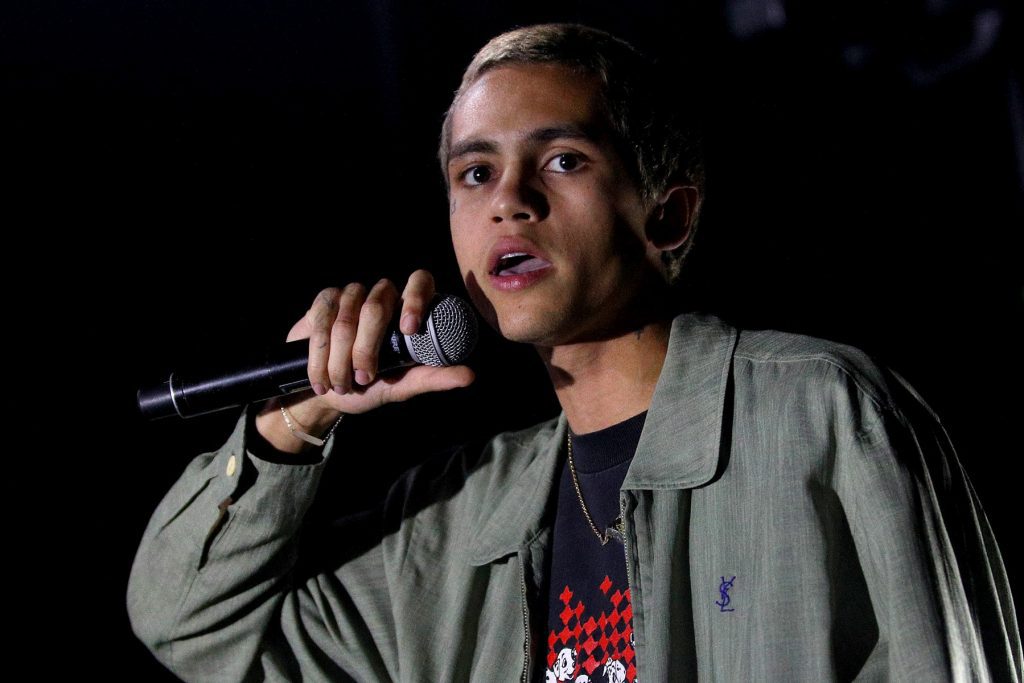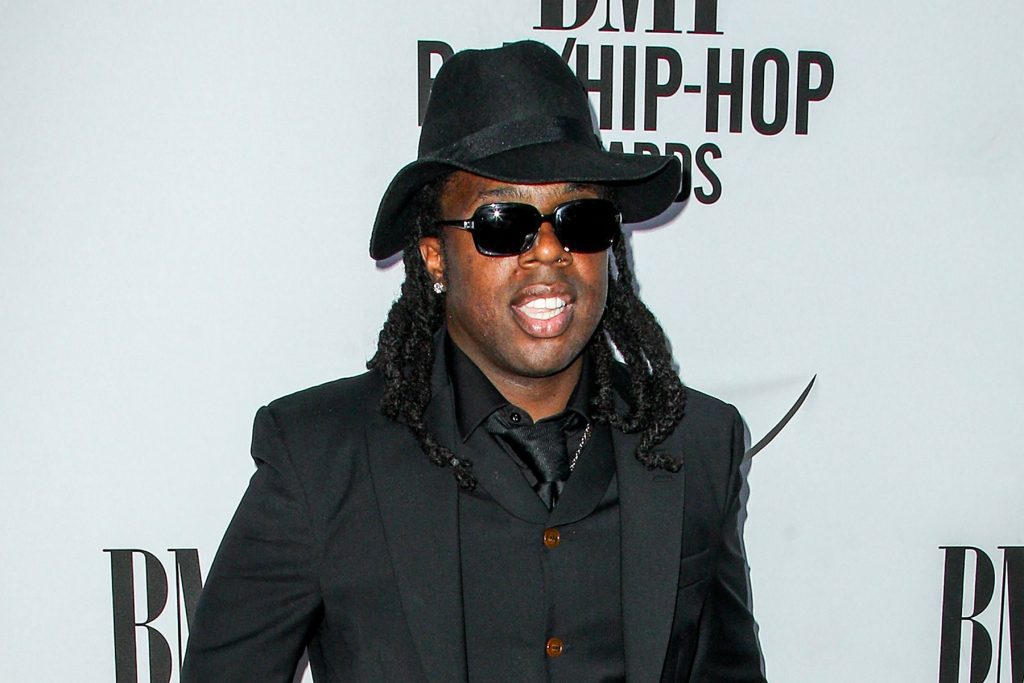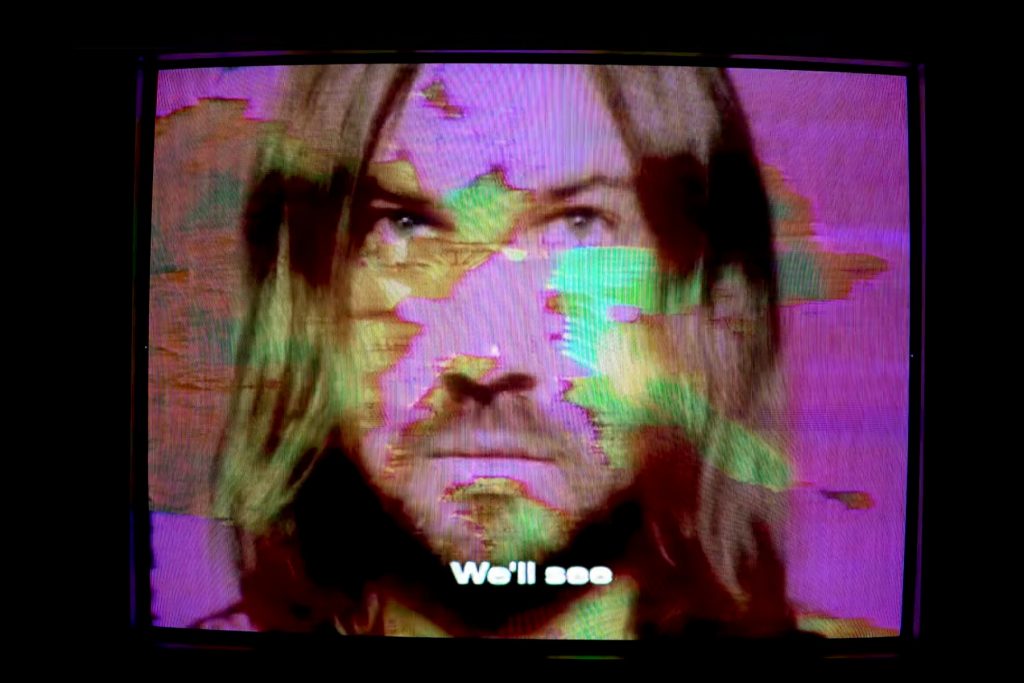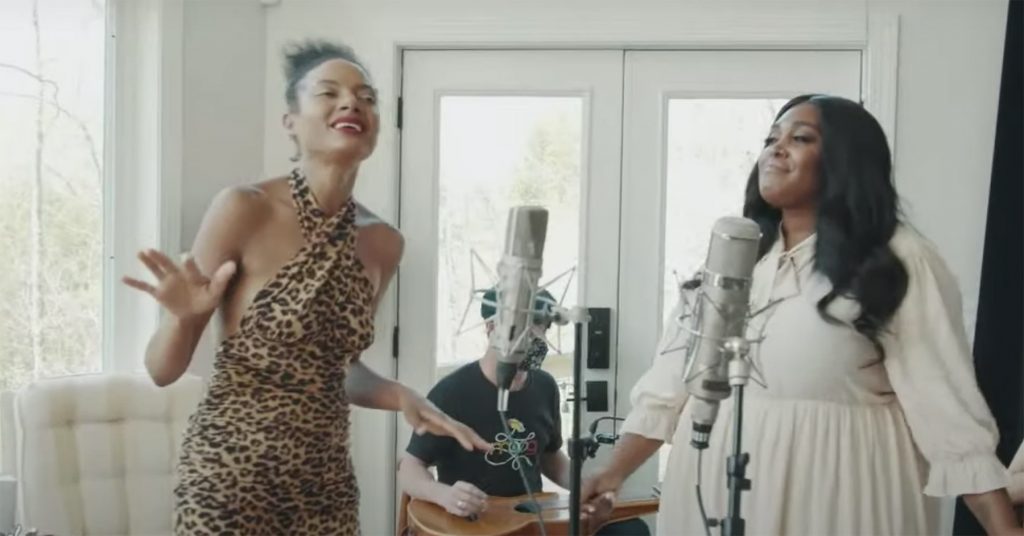
Dominic Fike Sounds Like He Hates His Job
What Could Possibly Go Wrong isn’t supposed to be divisive. The first full-length from music industry darling Dominic Fike is so anodyne and palatable that critically ravaging it seems beside the point. Since his emergence in 2018, Fike’s story has hardened into recent industry legend. He recorded a low-key EP while under house arrest in Florida, then released the collection of songs in 2017; in a flash, rumors of a $3-4 million dollar deal with Columbia Records began to circulate. Inevitably, the then-22-year-old artist hit the Spotify playlist circuit, racking up millions of plays on songs like “3 Nights” and “Babydoll.” Glowing press followed — The New York Times, The New Yorker, The Fader, Complex. It seemed as if multiple industries were so hellbent on signing, co-signing, and writing about the next Post Malone. Fike’s ascent seemed preordained, or engineered.
This makes Fike an easy target, the dreaded “industry plant” myth brought to life. In many ways, though, it’s easy to see why people (power brokers included) are drawn to him: He’s a low stakes rebel, a pinchably Instagram-ready face complete with tattoos a suburban mom would shirk at. Musically, he’s an amalgamation that sounds complicated — Wavves’ sonic crunch, Kevin Abstract’s heart-on-sleeve biographical bars, Jack Johnson’s beach bum vibes, Frank Ocean’s lyrical non-sequiturs, and the aforementioned Malone’s moody melodies — but really just feels like easy listening designed for the streaming age. What Could Possibly Go Wrong is filled with songs that, on the surface, are easy to love.
The problem is that these inoffensive songs are made by a singer that doesn’t seem too keen on the product he’s selling. There’s a need across What Could Possibly Go Wrong for Fike to skewer his persona before the audience has a chance too. A prime example of this is “Cancel Me,” a blunt opportunity for him to sing, “I hope they cancel me.” Fike’s reasoning behind the pre-emptive cancellation is sound: He wants to be with his family, take off his metaphorical mask, answering his eternally buzzing phone is annoying, and so is appearing on Jimmy Kimmel. Most artists wait until their sophomore album to gripe about fame, but Fike has skipped those steps and is ready to sing about celebrity as if it’s the worst day job imaginable. On songs like, “Superstar Sh*t,” he doubles down on the career-induced dread. It’s ostensibly a love song, but on the chorus he’ll throw out a line like “we’re spread so thin;” it’s hard to tell whether he’s still focusing on a relationship or is writing about a generation of SoundCloud singers strapped to million dollar deals they’re suddenly tasked with recouping. As a child of the internet, Fike is uniquely attuned to curating and subverting his narrative, but just because you deliver the punchline before your audience has a chance to doesn’t make the joke any more funny.
Dominic Fike is part of a new class of pop stars — Trevor Daniel, Bearface, Post Malone — that are essentially R&B singers with bigger budgets. As an African-American and Filipino artist, this leaves Fike in a precarious situation, because the way the industry tends to talk about his talent is drenched in once-in-a-generation platitudes that seem tied to a racially ambiguity that’s easily marketed, but not given as readily to someone like a Brent Faiyaz or Giveon. It leaves Fike to create a project of pastiches that dart between so many inspirations he begins to feel like a bit player in his own story. Just because one can rap like Brockhampton or pitch up their voice in a Blond-era Frank Ocean chirp doesn’t mean they should. But blaming the individual for the structural problem of the machine is, as always, futile.
A little more than halfway through the album, Fike’s “Vampire” arrives; it feels like the rare moments where his misery, self-flagellation, and goofiness coalesce into something that’s better than the sum of its parts. It’s essentially the set-up of Alessia Cara’s “Here,” mixed with a vampire metaphor where red wine might be blood and everyone is doing cocaine. It works. Removed from the regular dour proceedings, Fike revels in playing the role of the radio-ready star (or the recipient of an unrecorded Justin Bieber demo). It’s a moment of clarity, and a pop star emerges.
As of Thursday, What Could Possibly Go Wrong raked in 8,872,752 audio streams and 3,554 album sales placing him at number 30 on the IndieLand charts out of 200. For most new artists, those numbers would be a success, but Fike hasn’t been treated like most new artists. His rumored multi-million deal immediately placed him into a different commercial stratosphere, and onto a podium that seems beneficial to a record label but detrimental to a untested young artist. For better and worse, that is Fike’s story now. There will be hits, because Columbia paid for them. He may very well be the world’s next crossover star, rendering the critical merits of this project beside the point. But he’s not there yet, and his first full-length project sounds like one obligation among many. And that’s what makes Fike more relatable than he probably knows: He finally got the career he always wanted, only to realize that even dream jobs are still work. Even streaming stars still have to clock in.




